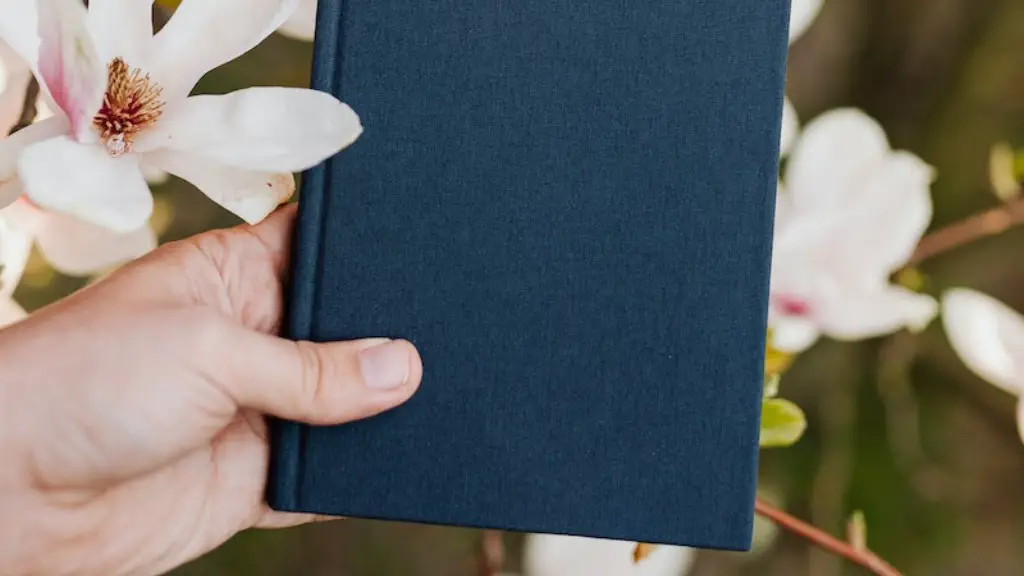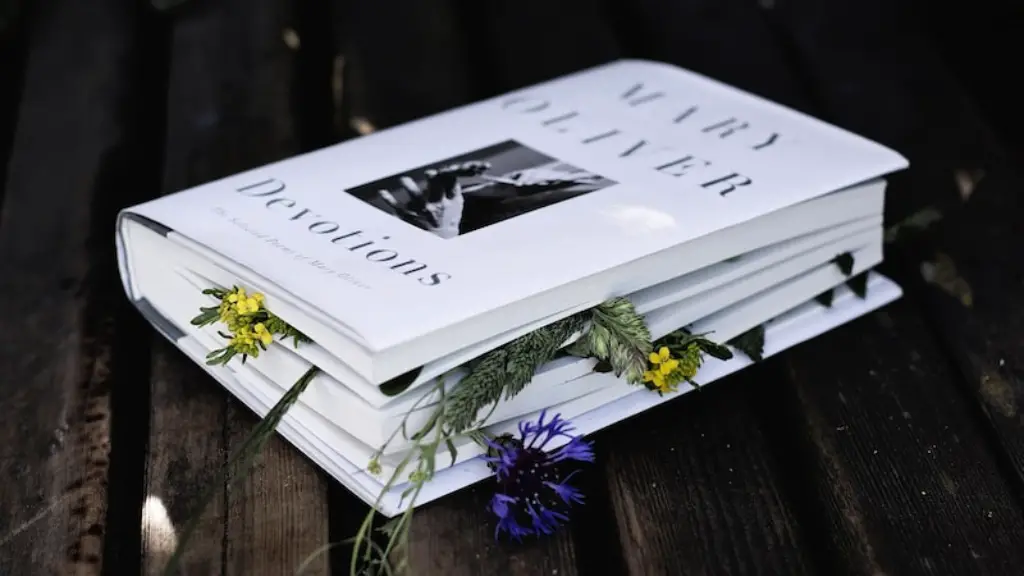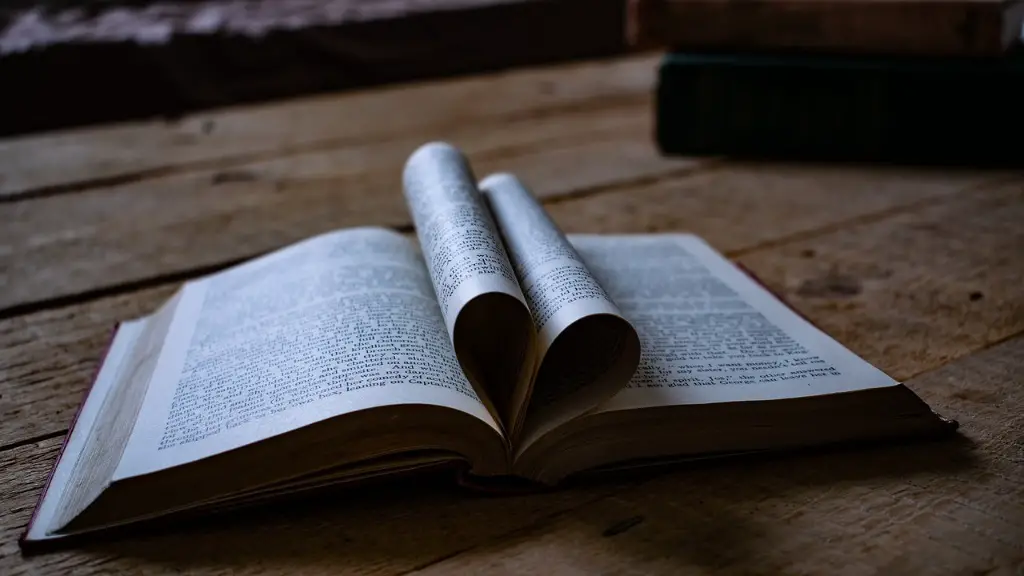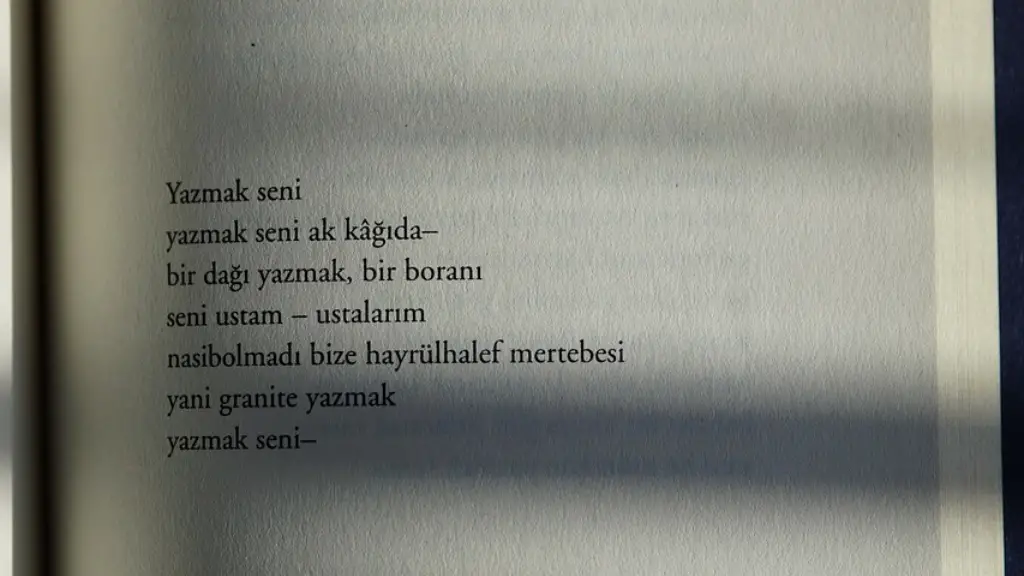Poetry has existed as a form of literature since time immemorial. From its very beginning, when it was part of oral traditions and told through stoires, riddles and chants, to today’s incredibly deep and intricate poems, poetry has always been used to express a range of emotions and intellectual ideas. Poems have served to celebrate, lament and document events, to explore the politics and philosophy of cultures, and to challenge and question established creeds.
According to experts, poetry is “often seen as an expression of the cultural milieu from which it comes.” For example, some of the earliest known poetry was found on cuneiform tablets in the ancient city of Uruk, in modern-day Iraq, dating back to the Bronze Age. This poetry was primarily concerned with celebrating the gods and mourning the death of loved ones. Similarly, some of the earliest surviving pieces of Western literature are the epic poems of Homer, such as the Iliad and the Odyssey.
Even today, poetry continues to be an important form of communication and connection. Modern poets often explore the complexities of life and attempt to express the depths of their creative souls in their work. From drawing upon nature and beauty to exploring the political and spiritual aspects of life, there is an endless range of topics for poets to explore.
But how does a poet find the words for this exploration? This is where the beauty of poetry lies– poets are able to conjure up images with their words and make the audience feel. By playing with rhythm, meter and word choice, poets are able to make their audience feel something deep and powerful. Whether it is a feeling of love, sadness, anger or joy, poets can use their words to move their audience in ways that no other form of literature can.
An important factor of the poetry world is the diversity of the poets themselves. Voices from all backgrounds, ages, races and genders are equal in the poetry world. Poetry can offer a particular insight into certain cultures and experiences, as well as being able to broaden and deepen perspectives. Furthermore, cultural and poetic norms are constantly changing as poets continue to test boundaries and evolve in their craft.
In conclusion, poetry has been an integral part of spoken language for thousands of years. It has changed and evolved throughout the centuries, responding to the times and providing a powerful way for people to express their thoughts, feelings and ideas.
Where does Poetry Come From?
The history of poetry is closely intertwined with the history of language, as it is with all forms of communication. What is remarkable, however, is that creative forms of language, such as poetry, have existed for thousands of years. The earliest known examples of poets were practitioners of ancient oral traditions, such as the Sumerians, who composed hymns, laments, and other forms of oral-formulated verse in cuneiform script around 1700 BC.
As language and culture evolved, so too did poetry. Literature in the form of epics, such as Homer’s Iliad and Odyssey, was composed in Ancient Greece around the 8th century BC. This also occurred in India with the Epic of Ramayana, as well as in China with the Classic of Poetry, which was collected by Confucious around 600 BC. These works served a purpose in society, being used to teach moral and religious lessons.
In the Medieval period, courtly love poetry was popularised in Europe, with the most famous example being the works of the 12th century French poet Chretien de Troyes. During this period, poetry was again used as a tool for teaching and edifying the upper classes. It was also used to comment on subjects such as religion and politics.
French troubadours and Italian literary societies, as well as Elizabethan and Metaphysical poets, further developed the form of poetry. This development was carried through to the 18th and 19th centuries, when the Romantic period gave birth to works such as the poetry of William Wordsworth, John Keats, and Percy Bysshe Shelley.
The 20th century saw yet more variety and innovation, with the emergence of modernist poets such as T.S. Eliot and Ezra Pound. Many more diverse forms of poetry have emerged since then, including rap and spoken word, which have become staples of contemporary society.
The Impact of Poetry Throughout History
Since its earliest days, poetry has been an important form of expression that has had a significant impact on societies throughout history. From ancient hymns that celebrated gods and mourned death, to Renaissance verses that explored the depths of intellectual pursuits, poetry has informed, challenged, and comforted societies for centuries.
Oftentimes poetry has been the vanguard of social change. Poets have used their writing as a tool for challenging established values and conventions. Take for example the works of 18th-century revolutionary poet William Blake, whose visionary songs of innocence and experience stirred up controversy and inspired a generation of writers to fight for social justice.
Poetry has also been a beacon of hope during difficult times. Poets have often used their craft to provide comfort and solace to those who are suffering. Take for example the works of the 18th-century poet William Cowper, who wrote poems to express his despair over his mental illness and to provide a message of hope for those in similar circumstances.
Today, poetry has taken on a new form: it is no longer the sole domain of elite bards and the academic intelligentsia. Modern poets are challenging the conventions of the craft and reshaping the boundaries of poetry. Moreover, poetry has become more accessible than ever before, as it is now widely available through digital formats and through public readings and performances.
In this way, poetry continues to have a profound impact on society today, as it offers an avenue for people to express their thoughts, feelings and ideas in unique and powerful ways.
The Benefits of Reading and Writing Poetry
Reading and writing poetry can provide a plethora of mental health and psychological benefits. Scientific studies have revealed that reading and writing poetry can help to improve creativity, reduce stress and build emotional resilience.
Reading poetry can help with language acquisition. As the structure of a poem is different from that of prose, reading poetry forces the reader to look for meaning beneath the surface, which can help to improve comprehension and analytical skills. Moreover, poetry can help to open up one’s imagination and broaden one’s knowledge of the world.
Writing poetry can provide a form of creative expression. It can be used to help process thoughts, feelings and experiences and to explore difficult topics. It can also provide a sense of control and accomplishment, as well as increase self-confidence.
Moreover, poetry can help to foster connections. By sharing our work, we can develop relationships, receive feedback, and gain support. Writing and reading poetry can be a powerful tool for connecting with others.
The Different Forms of Poetry
Poetry can take on a variety of forms, which are often shaped by cultural and literary conventions. From rhyming couplets to haikus and sonnets, there are countless forms of poetry to explore and discover.
Some of the most popular forms of poetry today include free verse, which is poetry that does not conform to any particular structure; tankas, which are short and lyrical verses; limericks, which are humorous and whimsical verses; and Haikus, which consist of three lines and seventeen syllables. Additionally, there are forms such as sonnets and villanelles, which are traditional forms that are used to explore emotions and ideas in deeply intricate ways.
At its core, all poetry is the same: it is a way of expressing and exploring the human experience. Each form of poetry offers something unique and different, and so it is best to explore and experiment in order to find the form that best resonates with you.
The Future of Poetry
Poetry has changed throughout the centuries and will certainly continue to evolve in the coming years. As technology advances, poets have more opportunities to reach wider audiences and share their work with the world. Similarly, technological advancements have increased access to literature and enabled people to share their writing in ways that were not possible before.
As technology expands, so too will the world of poetry. Poets will be able to reach more people, experiment more widely, and create works that are more meaningful to them. Moreover, poetry will continue to provide a platform for people to express themselves in ways that are meaningful, engaging and powerful.
Conclusion
Poetry is a craft that has existed since time immemorial, providing a powerful way for people to express their thoughts, feelings and ideas. It has been used to edify, challenge and comfort societies for centuries, and continues to evolve in response to changing times and cultural norms. Poetry is an invaluable form of literature, providing both mental and psychological benefits, as well as fostering connections between people. As technology advances, we can only anticipate what the future of poetry holds.





